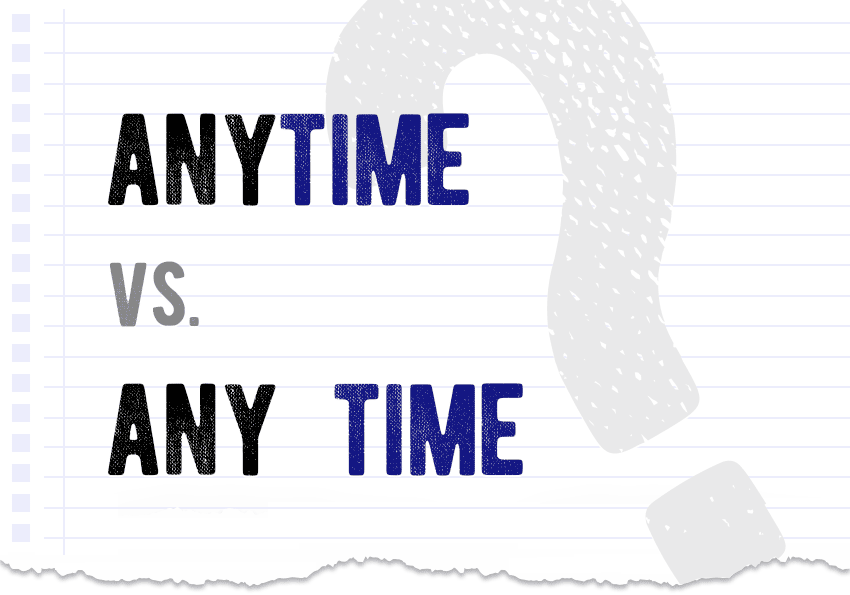Anytime vs. any time – how to spell it? Which one is correct?
Choosing between anytime vs. any time can be quite a dilemma. Which is correct and is there a difference? Here’s a quick guide to choosing the right spelling.

Anytime vs. any time – differences & meaning
Anytime and any time are two versions of the same adverb meaning “whenever”, “in an unspecified moment”. Both can also be used as a response to “thank you” to mean “I’m here whenever you need me”. As a rule of thumb, you’re safer only using any time as two separate words. However, both spellings are used and there are differences between them you might want to consider.
Anytime vs. any time. What is any time all about?
In the past, the only correct spelling was any time, but later it started to fuse into one word. The older version is still considered the more formal one. It’s also more universal – after all, it’s just the noun time put next to the determiner any, and means “any given amount of time”. Moreover, if you want to use a preposition, it has to be followed by the two-word version, e.g. “at any time”.
Anytime vs. any time. How useful is anytime?
The fused adverb anytime also has its uses. Except for being the more casual option, it’s increasingly seen as a part of popular phrases and expressions, including anytime soon (meaning “any minute now”), come back anytime (“visit me whenever you like”), etc. Remember that anytime is only acceptable when used as an adverb.
Surefire way to always be on the safe side
Anytime is the informal spelling of the adverbial meaning of any time. If you’re still struggling to remember when to use which, you should go for any time, since it’s always correct.
Anytime vs. any time – now it’s all clear! Examples from press
The power of these memories, which he sometimes captures on video, are why Rease felt determined to find a way to continue his project when it became clear that the pandemic wasn’t ending anytime soon.
Washington Post, Nov 11, 2020
In a yearlong study, participants who confined meals to certain hours lost no more weight than those who ate at any time.
New York Times, April 20, 2022


